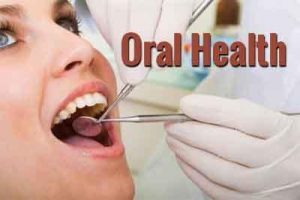- Home
- Editorial
- News
- Practice Guidelines
- Anesthesiology Guidelines
- Cancer Guidelines
- Cardiac Sciences Guidelines
- Critical Care Guidelines
- Dentistry Guidelines
- Dermatology Guidelines
- Diabetes and Endo Guidelines
- Diagnostics Guidelines
- ENT Guidelines
- Featured Practice Guidelines
- Gastroenterology Guidelines
- Geriatrics Guidelines
- Medicine Guidelines
- Nephrology Guidelines
- Neurosciences Guidelines
- Obs and Gynae Guidelines
- Ophthalmology Guidelines
- Orthopaedics Guidelines
- Paediatrics Guidelines
- Psychiatry Guidelines
- Pulmonology Guidelines
- Radiology Guidelines
- Surgery Guidelines
- Urology Guidelines
Poor oral health linked to a 75% increase in liver cancer risk, new study finds

The study, by researchers at Queen's University Belfast, analysed a large cohort of over 469,000 people in the UK, investigated the association between oral health conditions and the risk of a number of gastrointestinal cancers, including liver, colon, rectum and pancreatic cancer. Models were applied to estimate the relationship between cancer risk and self-reported oral health conditions, such as painful or bleeding gums, mouth ulcers and loose teeth.
Whilst no significant associations were observed on the risk of the majority gastrointestinal cancers and poor oral health, a substantial link was found for hepatobiliary cancer.
"Poor oral health has been associated with the risk of several chronic diseases, such as heart disease, stroke and diabetes", explained Dr Haydée WT Jordão, from the Centre of Public Health at Queen's University Belfast and lead author of the study. "However, there is inconsistent evidence on the association between poor oral health and specific types of gastrointestinal cancers, which is what our research aimed to examine."
Of the 469,628 participants, 4,069 developed gastrointestinal cancer during the (average) six-year follow up. In 13% of these cases, patients reported poor oral health. Participants with poor oral health were more likely to be younger, female, living in deprived socioeconomic areas and consumed less than two portions of fruit and vegetables per day.
The biological mechanisms by which poor oral health may be more strongly associated with liver cancer, rather than other digestive cancers, is currently uncertain. One explanation is the potential role of the oral and gut microbiome in disease development. "The liver contributes to the elimination of bacteria from the human body", stated Dr Haydée WT Jordão. "When the liver is affected by diseases, such as hepatitis, cirrhosis or cancer, its function will decline and bacteria will survive for longer and therefore have the potential to cause more harm. One bacteria, Fusobacterium nucleatum, originates in the oral cavity but its role in liver cancer is unclear. Further studies investigating the microbiome and liver cancer are therefore warranted."
Another theory in explaining the higher cancer risk due to poor oral health suggests that participants with a high number of missing teeth may alter their diet, consuming softer and potentially less nutritious foods, which in turn influence the risk of liver cancer.
Liver cancer is the sixth bigger cancer killer in the EU, claiming the lives of almost 60,000 people per year3. The five-year survival rate for the disease across Europe is just 11%4 and approximately 9 in 10 cases are in individuals over the age of 55 ref media pack. It is believed that up to half of cases of liver cancer are preventable, with risk factors often relating to lifestyle, such as overweight or obesity, smoking, and alcohol consumption.

Disclaimer: This site is primarily intended for healthcare professionals. Any content/information on this website does not replace the advice of medical and/or health professionals and should not be construed as medical/diagnostic advice/endorsement or prescription. Use of this site is subject to our terms of use, privacy policy, advertisement policy. © 2020 Minerva Medical Treatment Pvt Ltd